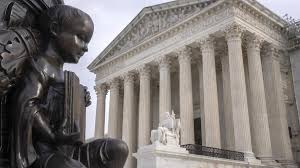The U.S. Supreme Court signaled on Monday it may take a closer look at car rental giant Hertz Corp.’s high-stakes bankruptcy showdown, inviting the Solicitor General to weigh in on a challenge that could reshape how solvent companies repay creditors after emerging from Chapter 11.
At the heart of this legal collision: a $272 million payout dispute involving post-bankruptcy interest and early payment premiums to unsecured noteholders, despite those creditors being fully repaid under Hertz’s 2021 reorganization plan.
The Core of the Clash: Solvent Debtor Exception
The Supreme Court issued a brief but potent order, requesting that Solicitor General D. John Sauer submit a brief expressing the U.S. government’s position on whether the Court should hear the case. Hertz had filed its petition for certiorari in April, aiming to reverse a split Third Circuit decision that invoked the long-debated “solvent debtor exception”—a doctrine rooted in common law but controversial in its modern application.
That decision found that Hertz still owed $147 million in early repayment premiums and $125 million in post-petition interest to creditors represented by Wells Fargo, acting as the indenture trustee for the holders of $1.24 billion in unsecured notes.



